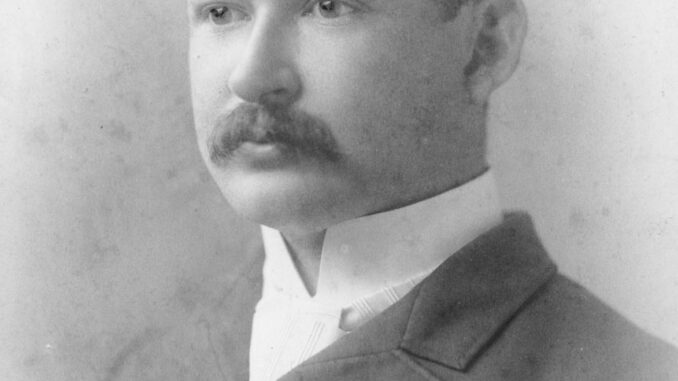
In 1903, history professor John Spencer Bassett at little Trinity College in Randolph County wrote an article in his South Atlantic Quarterly, “Stirring Up The Fires of Race Antipathy”.
“Now (Booker T.) Washington is a great and good man, a Christian statesman, and take him all in all the greatest man, save General Lee, born in the South in a hundred years…”
To name a black man, Booker T. Washington, even though he was regarded as the foremost proponent of education and free enterprise for freed slaves, in the same sentence as the revered Confederate General Robert E. Lee 38 years after the end of the Civil War was plain heresy in North Carolina at the time.
Professor Bassett went on to say blacks would ascend the economic and social scale once they were allowed access to education such as Booker T. Washington propounded.
Southern Democrats such as white supremacist Josephus Daniels, publisher of the News and Observer, were enraged. They demanded Trinity College fire Bassett. They also wanted President John Kilgo and the entire faculty fired if they supported Bassett’s right to free speech and freedom to teach on the campus of what became Duke University in 1924.
The faculty voted unanimously to support Bassett. The Trinity Board of Trustees — which included Benjamin N. Duke, the son of Washington Duke and older brother to James Buchanan “Buck” Duke — voted 19-7 to keep Bassett and guarantee his freedom of speech as professor at Trinity.
The actions of the administration and faculty at Trinity College in 1903 were universally recognized as a courageous defense of liberty, free expression, fairness and academic independence.
After sending this story to several friends who graduated from different colleges and universities, not one of them said: “Oh, my alma mater would have done the same thing today!”
It is a massive problem for the classical liberal notion of the “university” and philosophical inquiry when one side or the other is frustrated and denied the chance to speak freely. Great advances in social justice and intellectual achievement have occurred when ideas clash sharply in the crucible of unfettered public debate on college campuses and in the public square after college.
When Nikole Hannah-Jones was offered full tenure in the School of Journalism at UNC-Chapel Hill, I asked several liberal UNC alums who had served on the Board of Trustees and other capacities to name anyone on the faculty who could be considered the “Milton Friedman of conservative economic thought.”
They never named any by name. “There is no suppression of free speech at Carolina!” was always their canned answer. But they never could name any specific high-profile conservative thinker, professor, lecturer or guest speaker who had been allowed to speak on campus in recent years or, God forbid, who enjoyed full Kenan Professor-tenured status.
The biggest problem with censorship on college campuses today is not the suppression of conservative free speech and thought. Colleges and universities are crippling today’s graduates intellectually and rendering them incapable of winning political debates with reason, facts and winsome humor.
If a person never talks with people who disagree with them or hears arguments of the other side, how will they ever learn to refute or persuade them in a civil manner? If a person is truly as smart as they think they might be, they should welcome the chance to engage with the other side, not run away from them.
University faculty and presidents should open the flood gates to free and open speech and teaching on campus. Their students might learn how to win debates with words instead of taking to the streets to destroy people’s property and worse, injure, maim or kill innocent people.
Thomas Jefferson wrote to Dr. Benjamin Rush in 1800: “I have sworn upon the altar of God, eternal hostility against every form of tyranny over the mind of man.”
Professor John Spencer Bassett, the faculty and Trustees of little Trinity College exhibited such hostility against censorship in 1903. The 21st century might be a good time for the presidents of Duke, Carolina and every institution of higher education to follow their bravery.



